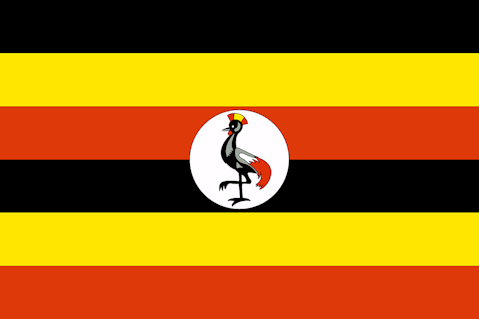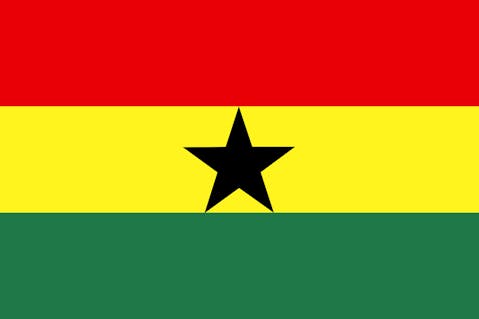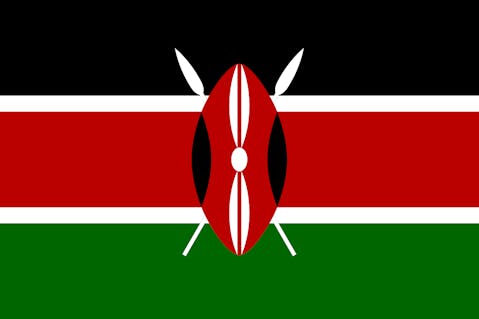In this article, we will take a look at the top 12 English speaking countries in Africa.
English is becoming the most spoken language globally, and it seems like everyone is learning it nowadays. People worldwide use it for business, trade, and even tourism in regions like Europe, Asia, and Africa. Promova says about 20% of the world’s population speaks English. Approximately 400 million speak it as their first language, and an additional 1.5 billion use it as a second or foreign language, as shared by Babbel Magazine. English is not only one of the most popular languages globally but is also the most commonly studied foreign language.
The widespread adoption of English can be credited to the British Empire, which colonized about 25% of the world. Initially spoken exclusively by Britons in the British Isles, it naturally spread as people colonized various parts of the world, engaging in trade with regions like Asia and Africa. While many continued using their native languages, English gained prominence in administrative and commercial contexts. Education back then, however, was exclusively in English, leading to its association with an elite class focused on philosophy, literature, and poetry.
Because of its widespread use and the size of the English-speaking population, English has become known as the universal language. Hollywood movies, with the largest worldwide audience, contribute significantly to English’s universal status. Although Hollywood films are often dubbed into local languages, the substantial viewership of English movies cannot be overlooked.
As globalization gains importance, having a common language facilitates business, and the English language, being widely adopted, plays a crucial role in international communication. English songs have a profound impact on the music industry, making proficiency in English essential for success in the international music scene. Learning English is comparatively easier due to its simpler grammar, straightforward plurals, verb conjugation, and gender neutrality. Moreover, English is the language used in various fields such as science, mathematics, technology, tourism, finance, and business, fostering international communication and job opportunities. Additionally, with its versatility and vast vocabulary, English dominates the internet, with over half of the world’s most visited websites displaying content in English, making it an invaluable language to learn.
While English only ranks as the third most spoken language globally, many people prefer using English for daily communication to connect globally. In numerous countries, English serves as a second language alongside native languages. The significant number of English speakers worldwide has contributed to the widespread adoption of this language. This uniformity minimizes communication challenges, making English highly efficient as an international language. Due to its efficiency, many individuals use English to communicate across borders, ensuring clear and effective communication, ultimately enhancing information transfer and overall efficiency.
However, the universal adoption of English has both positive and negative aspects. Millions of individuals are native English speakers worldwide, and many more learning it as a second or third language. However, the process of acquiring English can be challenging and frustrating to some, often stemming from insufficient vocabulary, difficulty in pronunciation, and concerns about speaking with an accent. Additionally, spelling in English can be challenging due to the lack of consistent conventions. Unlike ideogram languages such as Chinese, English lacks standardized spelling. American and British English follow different conventions, with variations in Australia, and Canada, featuring unique vocabulary items. Moreover, as millions of individuals adopt English as the universal language, it becomes a challenge for minority languages. As per a BBC article, over the last century, approximately 400 languages have disappeared, roughly one language every three months. In the upcoming century, it is predicted that 50% of the remaining languages will face extinction.
Africa, the second-largest continent, is home to many English-speaking countries. Africans, descendants of the black race, have their own rich culture and diverse languages. Western Colonization has led to classifying the African countries into English-speaking (Anglophone) and non-English-speaking categories. Anglophone countries, colonized by the British Empire, adopted English as their official language.
A lot of African governments are putting a strong focus on the world’s common language, and they’ve introduced programs to boost English skills across the continent. As English proficiency increases, Africa can actively engage on the global platform. Whether it’s international trade, business, tourism, or entertainment, this emerging continent has a world of opportunities ahead. Similar to Africa, Asia is also quickly rising globally, and English proficiency is expanding in the largest continent in the world.

A young African American woman excitedly speaking on her smartphone while using a prepay mobile service.
See also: 25 Most Educated Countries in Africa
Our Methodology
To compile our list of the top 12 English-speaking countries in Africa, we conducted extensive research, carefully cross-referencing information from diverse and reliable sources. Our selection process involved assigning points to countries each time they were mentioned in a source. Initially considering over 30 countries, we selected the top 12 based on the accumulated points. This approach ensured the accuracy and credibility of our list of the top 12 English-speaking countries in Africa. You can also take a look at the 15 Best African Countries for Female Sex Tourism to learn more about the industry, or the 15 African Countries With the Most Beautiful Women to have an idea about where to look for beautiful African women.
Top 12 English Speaking Countries in Africa
12. Tunisia
Ranking 12th in our list of the top 12 English-speaking countries in Africa is Tunisia. In Tunisia, the majority of young individuals possess the ability to read and speak English. Their educational system introduces French in the third grade of primary school and English in the fifth grade. English is a subject taught for a minimum of 10 years, spanning across schools, colleges, and universities, ensuring proficiency before graduation for the educated populace. Additionally, as a country reliant on tourism for economic growth, Tunisia has a considerable number of individuals proficient in foreign languages, including English, contributing to their income.
11. Rwanda
Rwanda ranks 10th in our list of the top 12 English-speaking countries in Africa. Kinyarwanda serves as the national language of Rwanda, being the primary language for almost the entire population, alongside French, English, and Arabic. In 2008, the Rwandan government shifted the language of instruction from French to English. By 2018, French was reintroduced as a foreign language at the primary school level, coexisting with English. Although French persists among the educated class, Kinyarwanda is preferred for simple topics, while English has become the predominant foreign language. In 2009, approximately 15% of the population was reported to speak English.
10. Gambia
Gambia secured the 10th spot in our list of the top 12 English-speaking countries in Africa. Gambia, formerly a British Colony, adopts English as its official language, alongside tribal languages like Mandinka and Wolof. With education conducted in English, a significant portion of Gambians are bilingual. Known for their friendliness and relaxed pace of life, Gambians communicate in a variety of English called Gambian English, a unique form within West African English. Although it has fewer speakers compared to other West African varieties, it shares similarities with Sierra Leonean English. The distinctions in Gambian English primarily involve vocabulary and pronunciation, influenced by the indigenous languages of The Gambia.
9. Zimbabwe
Ranking 9th in our list of the top 12 English-speaking countries in Africa is Zimbabwe. Zimbabwean English is a distinctive form of English spoken in Zimbabwe. Although the majority of Zimbabweans use Shona comprising around 75% of the people, and Ndebele comprising around 18% of the people, as their first languages, standard English takes precedence in education, government, commerce, and media, playing a crucial role in society. Approximately 5% of Zimbabweans are native English speakers, but an impressive 89% of the population can speak English fluently or at an advanced level, ranking second only to Seychelles, which is 93%, among African nations.
English becomes a key part of the Zimbabwean education system from grade 3 onward. As the sole official language, it holds the highest status among the languages used in the country. Despite its significance, Zimbabwean English is considered one of the under-researched varieties of English. It exhibits a blend of characteristics typical of British English, and to a lesser extent, South African English, earning its classification as a form of Southern Hemisphere English.
8. Liberia
Liberia landed in the 8th spot on our list of the top 12 English-speaking countries in Africa. Since its emergence in the early eighteenth century, the adoption of an English-based variety was primarily driven by its importance in maritime trade in Liberia. As settlers arrived and established political dominance, English gained a central role in governing the country, serving as a means of communication for Liberians who did not share a Niger-Congo language. The widespread displacement caused by the civil war increased the likelihood of Liberians needing to interact with others who spoke different native languages, further promoting the use of English/Kolokwa during this period.
Throughout the country’s history, English has played a crucial role in its overall development. When the Settler governments took control, the country’s Department of Education implemented a policy to provide education in English. This policy was well-received as people desired their children to learn English for the economic opportunities it offered. However, an unintended consequence of the English-only policy was the devaluation of local languages. Individuals were evaluated solely based on their proficiency in English, neglecting the importance of knowledge in native languages.
7. Sierra Leone
Sierra Leone ranks 7th in our list of the top 12 English-speaking countries in Africa. Sierra Leone is a diverse, multilingual country where English serves as the de facto official language, and Krio stands out as the most widely spoken. While English is used in schools, government, and the media, Krio functions as a lingua franca across Sierra Leone, spoken by about 97% of the 7.4 million citizens. Krio, derived from English Creole, facilitates communication among various tribes and ethnic groups in the country. Despite the presence of approximately 23 languages in Sierra Leone, some are at risk of extinction due to the widespread use of Krio.
Krio, the lingua franca and de facto national language of Sierra Leone is spoken throughout the nation. Around 300,000 Krios, descendants of slaves from the West Indies, the United States, and Britain, primarily residing in Freetown, consider Krio their native language. Krio, classified as an English-based creole, possesses fixed grammatical structures and rules, with vocabulary mostly drawn from English. While its sound system aligns with English, its grammar resembles nearby African languages.
6. Tanzania
Ranking 6th in our list of the top 12 English-speaking countries in Africa is Tanzania. The country boasts a rich linguistic diversity, with no single language spoken natively by a majority or large portion of the population. The country embraces Swahili and English, the latter inherited from colonial times, as widely spoken lingua francas. Swahili holds the status of the official national language, while various ethnic groups predominantly use their mother tongues within their communities. The linguistic landscape incorporates Swahili and English to varying degrees of fluency for communication across populations.
As outlined in the official national linguistic policy of 1984, Swahili takes precedence in the social and political sphere, as well as in primary and adult education. On the other hand, English assumes a key role in secondary education, universities, technology, and higher courts, reflecting the nuanced language dynamics shaping Tanzania’s diverse communication landscape.
5. Uganda
Uganda ranks 5th in our list of the top 12 English-speaking countries in Africa. The Republic of Uganda, situated in East Africa, is surrounded by Kenya to the east, Sudan to the north, the Democratic Republic of the Congo to the west, Rwanda to the southwest, and Tanzania to the south. The country exhibits linguistic diversity with approximately forty languages in active use. Luganda stands out as the most widely spoken local language, while English holds the status of the official national language.
English plays a pivotal role in Ugandan society, being taught in schools, employed in legal proceedings, and utilized by many newspapers and select radio broadcasts. Swahili also holds significance, serving as a crucial lingua franca in the northern regions. The influence of Ugandan languages on spoken English is noticeable, and individuals familiar with Uganda can often discern the native language of an English speaker. Indigenous languages in Uganda are composed of a broad spectrum. Certain Ugandan English expressions may carry specific meanings understood within Uganda but might be perplexing to those unfamiliar with the local context.

4. Ghana
Ghana secured the 4th spot in our list of the top 12 English-speaking countries in Africa. Due to Ghana’s historical ties with colonialism, Ghanaian English closely resembles British English, yet it displays notable variations influenced by location and context. In contrast to the twelve monophthongal vowels found in Received Pronunciation, Ghanaian English features only seven, aligning with other forms of African English.
Ghanaian English is a distinct variety spoken in Ghana, where English holds the status of the official language and serves as a lingua franca across the nation. Despite the presence of 11 indigenous government-sponsored languages widely used in the country, English remains the designated language for all official and formal purposes. Among Ghana’s over 28 million inhabitants, 67% can read and write in English, with one-fifth being exclusively literate in English. Notably, English is the sole medium of instruction in primary and secondary school classes at public schools and institutions preparing students for public certificates.

Pixabay/Public Domain
3. Nigeria
Nigeria landed on the 3rd spot on our list of the top 12 English-speaking countries in Africa. Nigeria, situated in West Africa, holds the distinction of being the most populous Black country globally, with an estimated populace nearing 220 million. Having been a former British colony until its independence in 1960, Nigeria is a key member among the six English-speaking countries in West Africa. Approximately 53% of Nigerians communicate in some form of English, making Nigeria one of the most significant English-speaking nations worldwide.
In Nigeria, English holds the status of a co-official language alongside three indigenous languages, which are Yoruba, Hausa, and Igbo. However, in practice, English stands as the sole official language across various domains, including governance, education, mass media, and law courts. While a majority of English speakers in Nigeria use it as a second language, there is a noticeable rise in the number of young Nigerians adopting Nigerian English as their primary language.
Nigerian English, much like South African English, has evolved as a nativized form throughout British colonization and beyond. Its development aligns with the historical context of colonization and subsequent influences. Nigerian English has uniquely adapted to its cultural environment, establishing itself as a distinctive linguistic expression. The concept of Standard Nigerian English (SNE) has been challenging to define, given the challenges faced in formal English instruction across various regions in Nigeria. Factors such as interference, limited facilities, and crowded classrooms have contributed to the complexity of establishing a standardized form. Despite these challenges, certain features have emerged across communities, transcending differences within Nigerian English. These features often reflect cultural values expressed uniquely through the English language.

Pixabay/Public Domain
2. Kenya
Ranking 2nd in our list of the top 12 English-speaking countries in Africa is Kenya. The country’s two official languages are English and Swahili. English is commonly used in significant areas such as business, higher education, and government. Documents like bills presented to the National Assembly are usually drafted in English. Television broadcasts and print materials are available in both Swahili and English. Radio broadcasts cater to diverse audiences by featuring Swahili, English, and various African languages. In rural schools, children are initially taught in their local language, but they also receive instruction in both Swahili and English.
The introduction of the English language to Kenya occurred during the colonization by the United Kingdom in 1895 when the East Africa Protectorate was established and later became a colony in 1920. Despite Swahili’s prevalence as a trade language along the Swahili Coast during colonization, the British diminished its influence, opting for English as the instructional language in Kenyan schools. Even after Kenya gained independence on December 12, 1963, English continued to be an official language alongside Swahili, which is also recognized as the national language. While English is not as commonly spoken as native languages in Kenya, it holds prominence in areas like media, government, and schools. Kenyan English, a local dialect, is spoken by various communities in Kenya and some Kenyan expatriates abroad. This dialect incorporates unique features influenced by local Bantu languages, including Swahili.

Pixabay/Public Domain
1. South Africa
Topping our list of the top 12 English-speaking countries in Africa is South Africa. British settlers first landed in the South African region in 1795, with a significant influx of English speakers occurring in 1820. Approximately 5,000 British settlers, predominantly from rural or working-class backgrounds, established themselves in the Eastern Cape. To promote the use of English in the colony, officials recruited British schoolmasters and Scottish clergy to take up roles in education and the church. In the 1840s and 1850s, another group of English speakers, including retired military personnel and aristocrats, arrived along with the Natal settlers. A third wave of English settlers, bringing diverse English dialects, arrived between 1875 and 1904. Despite their arrival, the influence of these last two waves on South African English (SAE) was not as significant, as the groundwork for its development had already been laid in 1820.
Black South African English, known as BSAE, is used by individuals whose primary language is one of the indigenous African languages. BSAE is categorized as a new form of English, as it has developed within the education system among individuals who speak English as a second language in regions where English is not the dominant language. At least two sociolinguistic variations have been thoroughly examined along a post-creole continuum for second-language Black South African English, which is spoken by the majority of Black South Africans. According to the Central Statistical Services, approximately 7 million black individuals in South Africa were English speakers as of 1994. The emergence of Black South African English (BSAE) can be traced back to the South African school system, particularly with the implementation of the 1953 Bantu Education Act, which mandated the use of indigenous African languages in classrooms. Consequently, English spoken in black schools developed distinct patterns of pronunciation and syntax, giving rise to BSAE. These characteristic features often have connections to the mother tongues of early BSAE speakers. Although the policy of promoting mother tongues in schools was not successful, by 1979, the Department of Bantu Education allowed schools to choose their language of instruction. English became the preferred language, seen as a crucial tool for social and economic progress.
Suggested articles:
- 25 Safest English Speaking Countries in the World
- 25 Cities With The Hottest Guys In The World
- Top 20 Countries with the Most Handsome Men in Asia
Disclosure: None. Top 12 English Speaking Countries in Africa is originally published on Insider Monkey.





